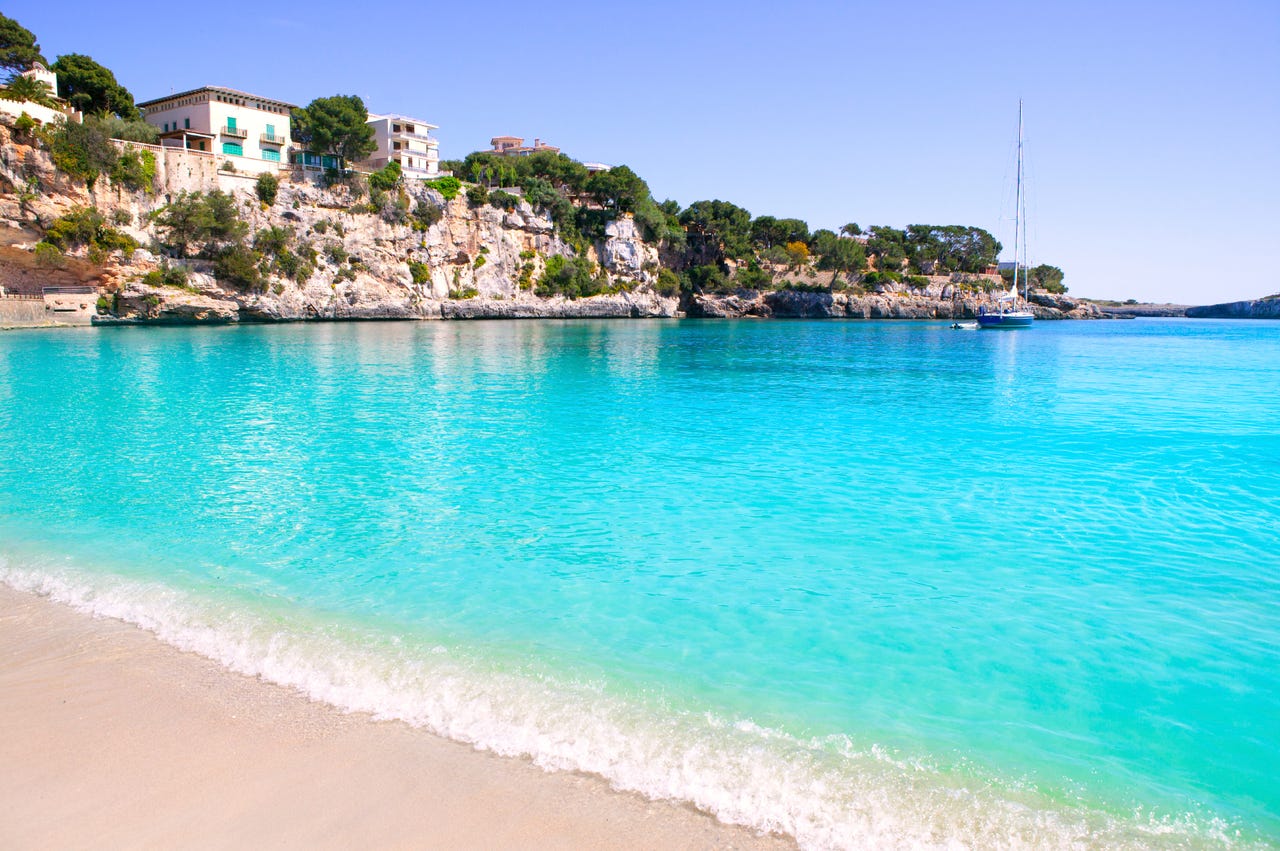Sun, sea, and open source: How Spain's Balearic islands are trying to turn into a tech paradise


Known for sun and beaches, the Balearic islands now want to be known for connectivity and open source.
Recently Spanish telecoms provider Telefónica, with 327 million customers in 21 countries, said the Balearics are the best-connected islands in the world, with nearly 90 percent of the population of Mallorca, Menorca, Ibiza, and Formentera online.
However, around the same time, the Spanish islands' government published a report showing that only 49.4 percent of Balearic households have an internet connection of over 30Mbps, 15 points below the average for Spain. Plus, only 7.6 percent of Balearic companies have broadband.
General director of technological development in the Balearic government, Benjamí Villoslada, believes this situation should be corrected as soon as possible because poor-quality connection hinders economic development and limits companies' competitiveness.
Read this
"Our insularity prevents us from manufacturing trains, planes, or cars. But we can get those who design and test them before prototyping to live in the Balearic islands. They already have a powerful motive to stay there, which is working from paradise. Yet, without broadband they wouldn't even think about it," Villoslada says.
He wants to develop a model of "sun and data" for the Spanish archipelago. "We'd like all the tech talents who know the islands as tourists looking for sun and beaches to become residents of sun and data. When looking for a place to work, they would possibly prefer the charm of our villages and orchards, but these are precisely the areas that don't count for the telecoms companies. So we can't just rely on them, we need to fairly use European funds," he says.
The study commissioned by the Balearic government and carried out by the Balearic Observatory on the Information Society (OBSI) suggests that up to €15.5m should be invested before 2020 and outlines where. Half of the money would come from ERDF funds.
"We're drafting the call for broadband extension project grants. The first work should start this year, provided it doesn't become a drawn-out process," Villoslada says. The Balearic government plans the connectivity to be significantly improved by 2017 but still expects that 62.2 percent of the 981 areas analyzed in the report will have insufficient coverage.
The most poorly-served location for connectivity is Formentera, the smaller and most southerly island of the Pityusic Islands group, which also included Ibiza. There, the Insular council, or Consell Insular, in Catalan, has implemented the Wi-Fi Formentera project, which provides 1Mpbs wireless internet to all residents at the reasonable price of €10 a month.
But locals still say their connections are poor. In 2013, the island was in the news because a large yacht damaged a Telefónica-Movistar fiber-optic cable that provided 2,360 lines. The incident left the island without ATMs or POS systems in the tourist season.
Telefónica tells ZDNet that since then the cable has been shielded with a metal mesh and more redundancy has been added to ensure connectivity. But there's still a general feeling that the island's connection remains vulnerable, even though the company says it "maintains its plan to bring fiber-optics to all populations of more than 1,000 inhabitants by 2020".
However, locals often distrust the operator's claims. "We want to pay the same and have the same access and opportunities as those who live in the Peninsula," Antonio Fernández-Coca, illustrator and professor at the University of the Balearic Islands, says.
Connectivity remains only part of plans to improve the digital credentials of the Balearic islands. Another major element is the increased use of free and open-source software in the administration.
Tech director Villoslada says when he starting working for the government, formed by the Socialist Party (PSIB), MES per Mallorca, MES per Menorca, Podem and Gent per Formentera after the elections of May 2015, he found that the Balearic administration was already working with free software.
He cites Helium, an application to manage files, as an example, or SISTRA, a program for procedures that is also used by other agencies, such as the port authority.
However, work remains to be done, especially on civil servants' desktops. "We started by replacing MSN Office", explains Villoslada. "Thanks to free office suite LibreOffice 5, we may overcome compatibility problems with documents coming in from different versions of MSN Office. We already have 1,000 Office licenses which are not necessary anymore, and we plan not to renew over 5,500 licenses purchased in 2007", he adds.
The idea is to follow up and change the operating system, too. Public servants currently use Windows 7 but Villoslada does not want to upgrade to Windows 10 but rather to GNU/Linux.
"We must take advantage of the fact that people no longer have as much 'Windowitis' as a few years ago. Today, everybody can use tablets and mobile phones with different OS and features. We must foster the idea that diversity is also possible on the PC and that it is OK", he says.
He also wants to make changing to the government's email system.
"The administration has to start thinking that some services such as email are a commodity that can be contracted as a service, provided it complies with the assurances required by our audits and it does not jeopardize the future," he says.
In that same vein, he wants to use more open-source corporate cloud software and has introduced new services using the open-source, self-hosted file sync and share application platform ownCloud, and Alfresco open-source enterprise content management platform. He has also implemented the Odoo suite of open-core enterprise management applications to replace SAP.
Villoslada makes clear that when the administration uses free, open-source software that it has not had a hand in developing, it always looks for ways to contribute money to the project.
He is open in saying there is no return on investment in financial terms from this major shift to open source.
"The return is for us to be open source within 10 years. Whether we like it or not, this is unstoppable. All resistance is futile. That is clear to me," he says.
"The upcoming challenges for a digital Balearics are great, and it would be irresponsible not to be ready to meet them. The government has a duty to encourage the development of the necessary infrastructure to be better prepared to face the future."